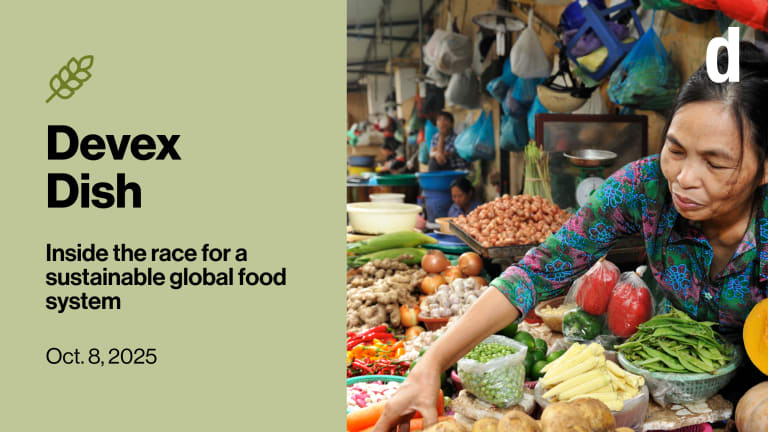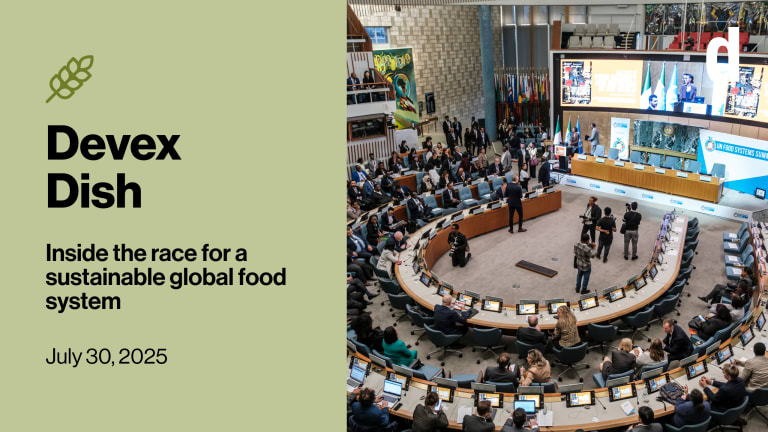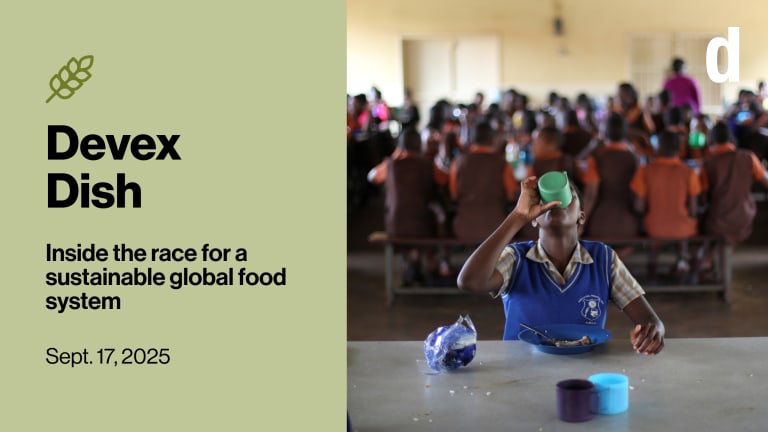
Happy World Food Day, Dish readers!
It feels like the kind of day that we should be celebrating delicious food, the miracle of what our planet can produce, and the beauty of gathering around a nourishing meal. But the reality is that far too many people don’t have enough to eat — and often when they do, that food is not nutritious enough.
This year’s State of Food Security and Nutrition in the World report should give us all pause: Some 733 million people, or 1 in 11 people worldwide, are going hungry. That figure rose during the pandemic and has remained stagnant ever since as the main drivers of hunger — conflict, climate change, and economic shocks — occur more often and with greater intensity. In Africa, where the situation is most dire, more than 1 in 5 people are facing hunger.
The theme of World Food Day this year is “Right to foods for a better life and a better future,” and to me it reads like a call to action for us all. That right to affordable, diverse, healthy, safe food is nowhere close to being met — even in higher-income economies.
“There is no time to lose. We must take immediate action, ” Qu Dongyu, director-general of the Food and Agriculture Organization said today at the World Food Day ceremony in Rome, Italy. He called for renewed “commitment to build more efficient, more inclusive, more resilient and more sustainable agrifood systems that can nourish the world.”(By the way, happy 79th birthday to FAO!)
If you’ve been following Dish all year, we’ve highlighted many innovations in agriculture — from investing in “orphan crops” to developing more heat-tolerant crops — that can lead to healthier, more sustainable diets for both humans and the planet. But that responsibility lies not just with food producers, but anyone and everyone working throughout the agrifood value chain, along with the policymakers who decide how budgets get spent. An opinion piece for Devex out today highlights the role that leaders within the food and beverage industry can play.
“The private sector stands at a pivotal crossroads. Embracing nutrition is no longer an option but essential,” write Vinita Bali of the Britannia Nutrition Foundation; Greg S Garrett, executive director of the Access to Nutrition Initiative; Paul Polman of IMAGINE and the Kilimanjaro Blind Trust charity; and Rajiv Shah, president of the Rockefeller Foundation.
“Against this ‘perfect storm’ of food and nutrition issues, CEOs from the food and beverage industry are in a privileged position to drive change. They make the decisions that steer the innovation, inputs, production, aggregation, trading, processing, and marketing of most of the foods available globally,” they add.
They call for leaders to end marketing of unhealthy food to children, increase the proportion of sales of healthy food, and implement sustainable production and operating practices aligned with deforestation and greenhouse gas emission targets, among other things.
Opinion: CEOs worldwide must drive healthier, more sustainable diets
Background reading: More than 700 million people went hungry last year, says UN report
+ I’ll be in Washington, D.C., on Oct. 24 for our flagship event, Devex World, taking place alongside the World Bank annual meetings. We’d love to have you as part of the conversation. Get your tickets now.
I’ll also be in Des Moines, Iowa, the following week for the Borlaug Dialogue and World Food Prize. Want to meet up? Drop me a line at dish@devex.com.
SUN-down
This year’s Scaling Up Nutrition Movement conference — set to be held late next month in Kigali, Rwanda — has been postponed to next year due to an outbreak of the deadly Marburg virus in the region.
Marburg is a highly infectious disease caused by a virus from the same family as Ebola. Its mortality rate can reach up to 88%, though it’s 22% in Rwanda, where at least 13 people have died of Marburg since it emerged three weeks ago.
Some 1,000 people from 66 countries were set to attend the nutrition event. SUN Movement Coordinator Afshan Khan cited participants’ “health and safety” as the reason for delaying it. “This precautionary measure also ensures that the Global Gathering does not complicate the Rwandan Government’s swift and effective response to this outbreak,” she said in a statement last week.
The gathering was timed to precede the Nutrition for Growth, or N4G, Summit set for next March in Paris, France, in order to encourage political and financial commitments ahead of time.
“To maintain momentum, we will ensure regional consultations, providing an opportunity to discuss and exchange ideas on national-level commitments,” Khan said. “By hosting the Global Gathering when the N4G commitments are finalized, the World Health Assembly's nutrition targets for 2025–2030 are set, and ahead of COP30, the SUN Movement will be in a stronger position to integrate nutrition action into both global and national agendas.”
A new date for the global gathering has not yet been set.
Keep it flowing
Meanwhile, the road to N4G also took center stage at the World Health Summit in Berlin, Germany this week.
Brieuc Pont, the French special envoy for the 2025 Nutrition for Growth Summit, emphasized the need for continuity of funding for nutrition — and cautioned against allowing N4G to be a “beauty contest” to collect money every four years. To that end, the governments of Japan, France, and the U.S. are forming a “troika” to ensure sustained administrative and financial sustainability for carrying out N4G’s goals, he said during a panel discussion Monday.
“The last summit … set the bar astronomically high, with $42.6 billion raised at a time when countries were closed, accounts were closed,” Pont said of the 2021 event held in Tokyo, Japan. “And that puts us in a difficult situation. The risk we’re running here is pledgeflation, donor fatigue, and at the end of the day a train wreck. So our main purpose here is to ensure the legacy and to make sure N4G lives on.”
He also underlined the high return on investment when countries invest in nutrition — even as countries cut development aid overall.
Opinion: Investing in nutrition is investing in a more resilient world
From our archives: 5 ways to accelerate momentum for the Paris nutrition summit
+ Devex Pro members can read about the Child Nutrition Fund, the new funding mechanism to support government-led initiatives to treat and end malnutrition.
Not yet a Pro member? Access all our exclusive reporting and analyses, data-driven funding insights, members-only events, and the world’s largest global development job board by starting a 15-day free trial today.
Bringing home the bacon
Your next job?
Agricultural Systems Manager (Nigeria Food Baskets)
RTI International
Nigeria
Chew on this
Nearly 2 million children are at risk of death due to funding shortages for ready-to-eat-therapeutic foods to treat the condition, with Mali, Nigeria, Niger, and Chad facing current or imminent stockouts. [UNICEF]
About 80% of countries have failed to submit their plans to preserve nature ahead of the COP 16 biodiversity summit in Colombia. [The Guardian]
People living in active conflict, legacy conflict, or refugee-hosting countries account for 99% of the 281.6 million people facing acute hunger in the world as conflict drives hunger and warring parties weaponize food aid. [Oxfam]
Southern Africa is enduring its worst hunger crisis in decades due to El Niño, affecting some 21 million children. [AP]








